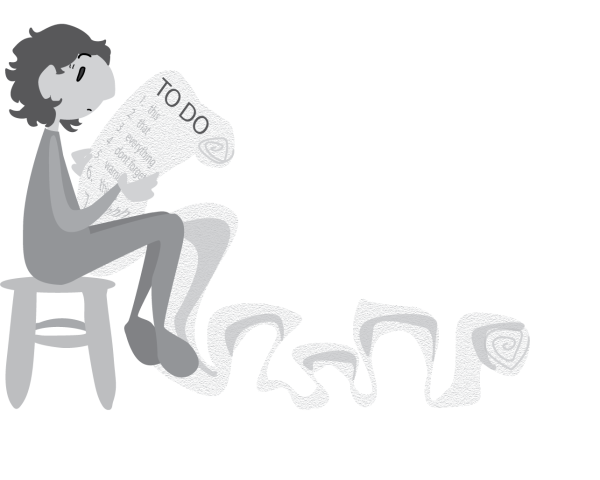Sickness hinders efficiency
Credit: Savannah Jarrett
Waking up in the morning is a painful process.
Sickness manages to make mornings even worse as nearly every part of your body feels heavy and aching as if you had slept with 50 pound weights for blankets.
When you are in such a state going to school is the last thing you want to do. Getting out of bed feels like competing in the Olympics: you start with bench pressing your blankets off and then move on to swim through your murky room. After that, you start the long run down the stairs and out the door, only to find that your only reward is six hours of school.
In spite of these obstacles, students manage to drag themselves out of bed, shove a few ibuprofen down their throat and lug themselves into their car or a bus.
Why submit yourself to such torture? For most students it is because they cannot afford to miss a day of schoolwork.
Staying home, after all, means that you miss out on six hours of instruction that could include anything from important lessons to tests.
Missing a test means that you have to find time before or after school to come in and take it. When you miss a lesson you have to hope that someone in your class took good enough notes or you can come in before or after school to get help from the teacher.
Both of these scenarios are not so intimidating by themselves but multiply them by six and you have a problem on your still-clammy-from-sickness hands.
So kids bolster up the energy to go to school, coughing and sneezing down the halls until they create of symphony of germs. After all, who cares about spreading germs when it means not having an extra pile of homework?
Well, if you look around at the posters in the nurse’s office, it would seem that everyone should care about viruses and germs. “Stay home when you are sick!” teachers and administrators cry. “Do not risk infecting the entire school!”
I tend to respond to these comments with rolled eyes when I am sick, because if anyone so much as glanced at me they would understand that I did not want to be here. If I could stay home, I assure you I would.
However, for me and many others, going home is simply not an option due to the workload. The very same people who are asking if I need to go to the nurse are often the same people keeping me at school.
This is a classic example of a paradoxical situation: Students are being told that staying home is best, but punished for it when they do.
No one chooses to be sick (I can promise you that my case of pneumonia over the summer was anything but chosen), so the expectation that students should be able to do a week’s worth of homework in a mere couple of days is both unfair and absurd.
Therefore, we should only encourage sick students to stay home if we can back it up with ways to help them when they return.
If students, administrators and teachers alike managed to follow this strategy, the paradox would end. The germ symphony would be reduced to a mere trumpet solo and sick students would no longer have to perform the Olympics.
Instead, they could receive the greatest prize of all: knowing that they can heal and recover without stressing over school.
Your donation will support Viking Student Media and the content we create. Your contribution will allow us to purchase equipment and cover our annual costs, including website hosting, printing the newspaper and yearbook, and purchasing new equipment.






